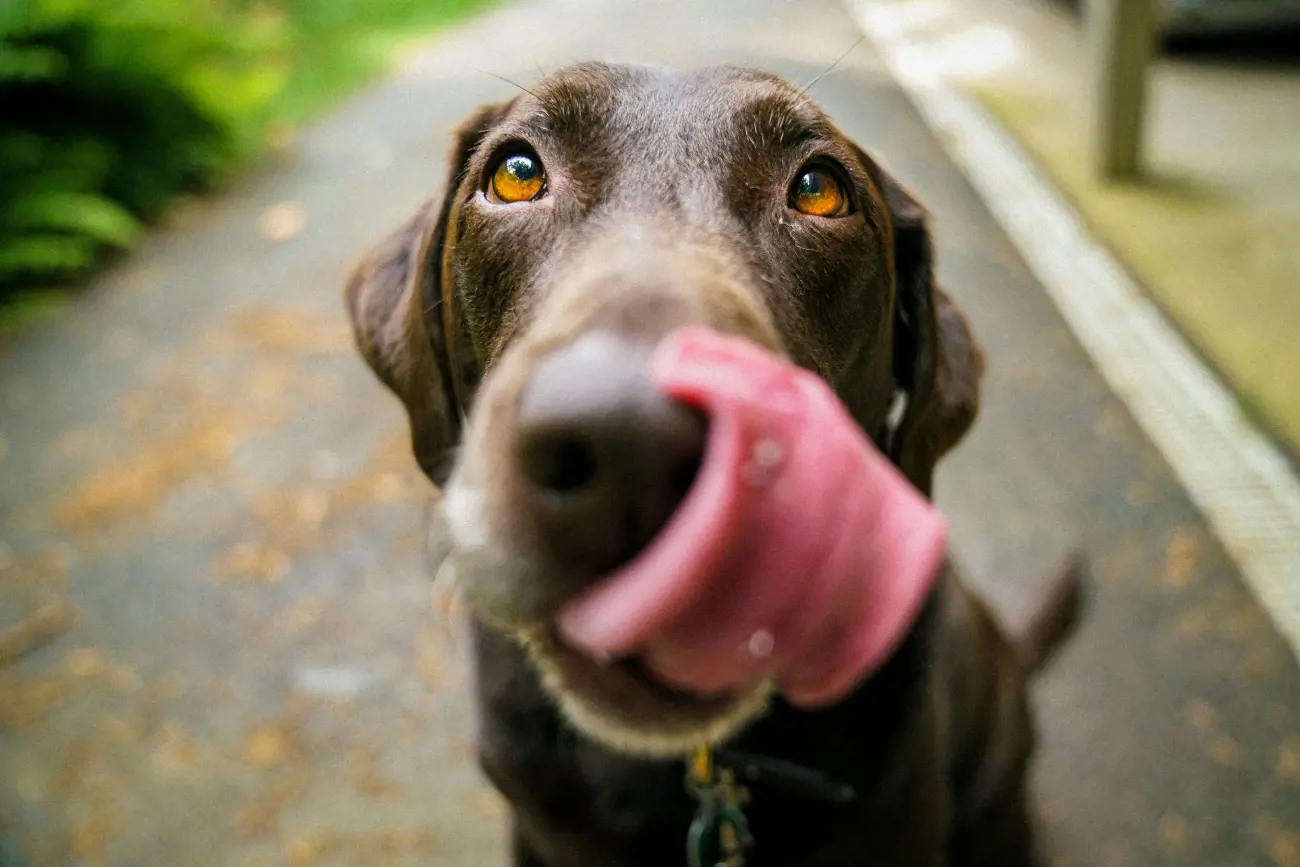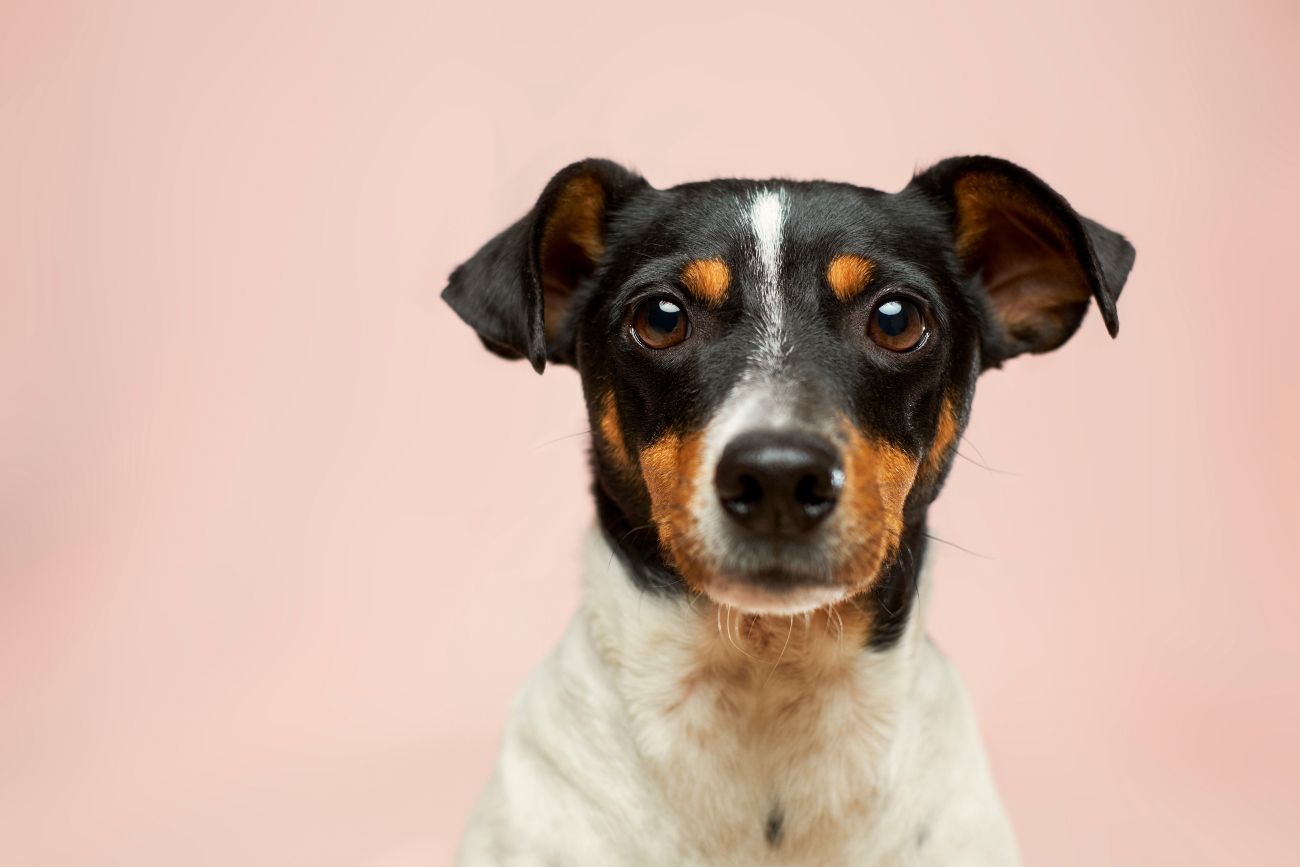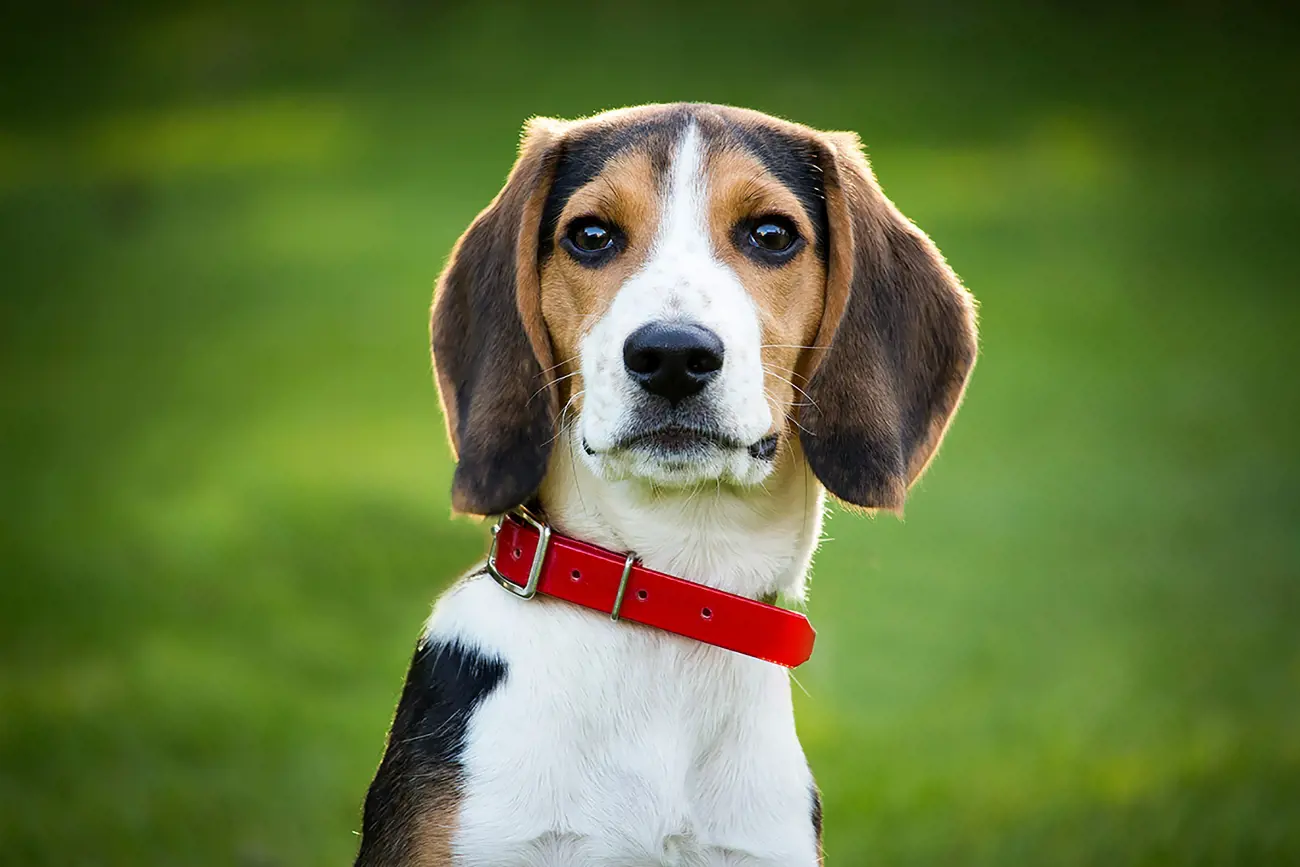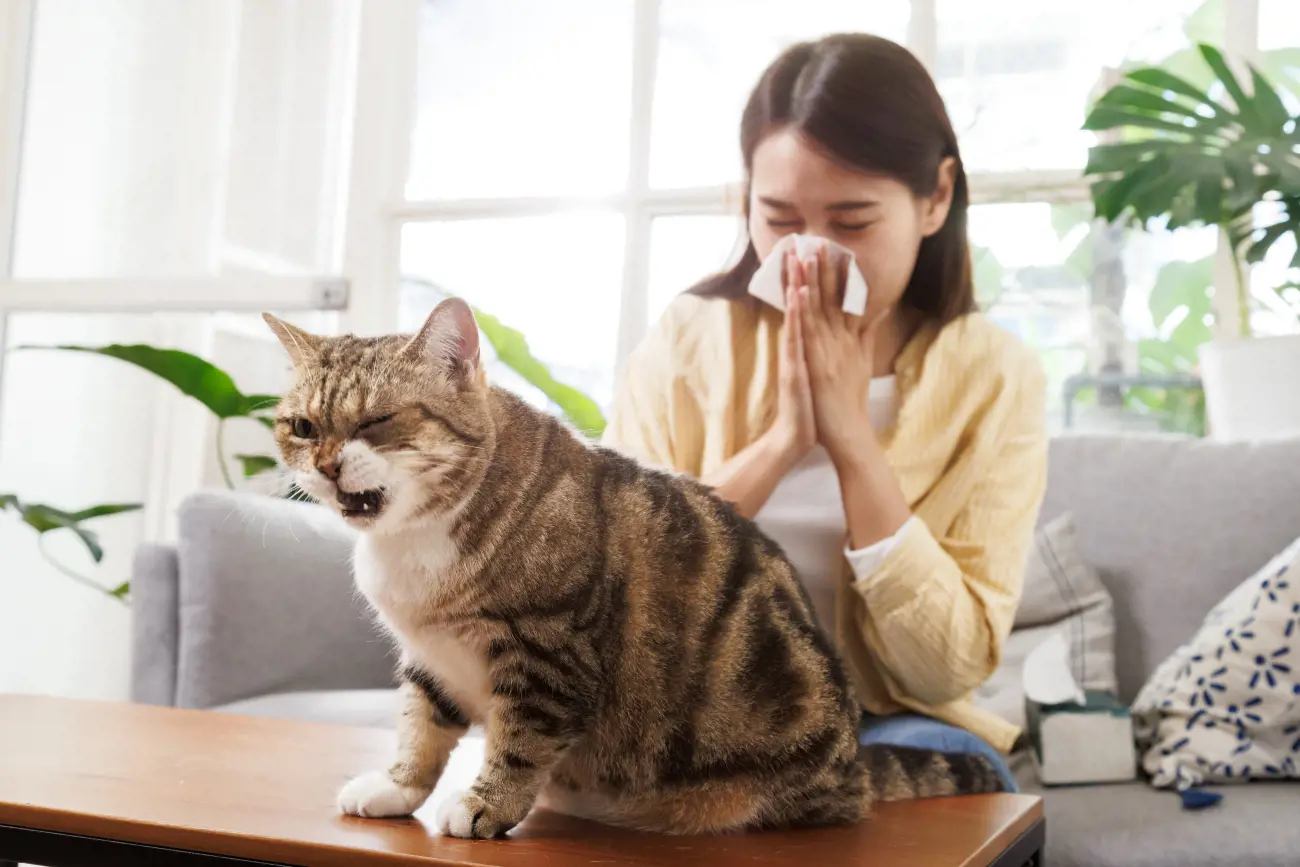Why does my dog have bad breath?
7th February, 2025

While slobbery kisses from our furry companions may seem like a delightful display of affection, the accompanying foul odour can swiftly transform that heart-warming gesture into an unpleasant encounter.
Canine halitosis, or persistent bad breath in dogs, is an issue that plagues numerous pet owners worldwide. However, this undesirable scent could be more than just an olfactory nuisance; it might signify an underlying health condition that warrants prompt attention.
In this guide, we'll delve into the potential causes of your pup's pungent pant, explore preventative measures, and discuss effective treatment options.
Plaque, tartar, and periodontal woes
The most prevalent culprit behind your dog's breath is poor oral hygiene, which can lead to a cascade of dental issues. Just like humans, dogs are susceptible to the accumulation of plaque, a sticky film of bacteria that adheres to their teeth. If left unchecked, this plaque can harden into tartar, a crusty deposit that harbours even more harmful microorganisms.
As tartar builds up along the gum line, it can trigger an inflammatory response known as gingivitis, characterised by swollen, reddened gums that are prone to bleeding. If left untreated, gingivitis can progress into a more severe condition called periodontal disease, which involves the deterioration of the supporting structures that hold the teeth in place.
This vicious cycle of poor oral hygiene, plaque formation, tartar build-up, and gum disease not only leads to foul-smelling breath but can also result in tooth loss, abscesses, and even systemic health issues if the bacteria enter the bloodstream.
Tell-tale signs of oral health
To identify potential oral health problems in your furry friend, keep an eye out for the following tell-tale signs:
-
Persistent bad breath, even after consuming fresh water or food
-
Discoloured dog's teeth with visible tartar build-up
-
Gum inflammation
-
Difficulty chewing or reluctance to eat
-
Excessive drooling or pawing at the mouth
If you notice any of these symptoms, it's essential to schedule an appointment with your veterinarian for a thorough dental examination and professional cleaning.
Microbiome imbalances and dietary indiscretions
While oral hygiene plays a significant role in bad dog breath, the root cause of your pup's pungent pant may extend beyond their pearly whites. The delicate balance of microorganisms residing in your dog's gastrointestinal tract, known as the gut microbiome, can also contribute to foul-smelling breath.
A healthy gut microbiome is essential for optimal digestion, nutrient absorption, and immune function. However, when this intricate ecosystem becomes disrupted, an overgrowth of harmful bacteria can occur, leading to the production of noxious gases and volatile compounds that your dog exhales through their breath.
Identifying gut-related halitosis
To determine if your dog's bad breath stems from a gut-related issue, be on the lookout for the following signs:
-
A distinctly foul or rotten odour emanating from your pup's mouth
-
Frequent flatulence or burping
-
Vomiting or diarrhoea
-
Loss of appetite or weight loss
-
Lethargy or decreased energy levels
If you suspect a gut-related issue, consult with your veterinarian, who may recommend dietary changes, probiotics, or other appropriate treatments to restore your dog's gut health and alleviate their unpleasant breath.
Kidney, liver, and metabolic disorders
While oral hygiene and gut health are common culprits behind canine halitosis, certain internal organ disorders can also manifest as foul-smelling breath. These conditions can range from relatively mild to life-threatening, underscoring the importance of seeking prompt veterinary attention.
Kidney disease
If your dog's breath smells distinctly like urine, it could be a warning sign of kidney disease. The kidneys play a crucial role in filtering waste products from the bloodstream, and when they malfunction, toxins like urea can accumulate, leading to a characteristic ammonia-like odour in dog breath.
Other symptoms of kidney disease in dogs may include increased thirst and urination, lethargy, loss of appetite, and vomiting. Early detection and treatment are essential to manage this condition and prevent further complications.
Liver disease
A foul, almost rotten odour emanating from your dog's mouth could indicate liver disease. The liver is responsible for breaking down toxins and metabolic waste products, and when it fails to function properly, these substances can accumulate in the body, causing a distinct, unpleasant smell.
Additional signs of liver disease in dogs may include vomiting, diarrhoea, loss of appetite, weight loss, and yellowing of the skin and mucous membranes (jaundice). If you notice these symptoms, seek veterinary care immediately, as liver disease can rapidly progress and become life-threatening.
Diabetes
If your dog's breath has a fruity or sweet aroma, it could be a sign of diabetic ketoacidosis, a serious complication of uncontrolled diabetes mellitus. In this condition, the body breaks down fat for energy, producing ketones that can be detected through the breath.
Other symptoms of diabetes in dogs may include excessive thirst and urination, increased appetite, weight loss, and lethargy. Prompt diagnosis and treatment are crucial to manage this metabolic disorder and prevent potentially life-threatening complications.
Oral tumours
In some cases, the foul odour emanating from your dog's mouth may be indicative of a more sinister underlying condition: oral tumours. These growths, which can develop in various areas of the mouth, such as the gums, palate, or tongue, often become infected and necrotic (dead tissue), leading to a distinctly rotten smell.
Oral tumours in dogs can be aggressive and may cause additional symptoms, such as excessive drooling, difficulty eating or swallowing, visible masses or lumps in the mouth, and bleeding or discharge.
If you notice any of these signs, it's imperative to seek veterinary attention promptly, as early detection and treatment can significantly improve the prognosis and quality of life for your dog.
Establishing a routine for optimal oral health
While addressing the underlying causes of bad breath is essential, prevention is always the best approach. Find our blog on tips for looking after your dog's teeth. By establishing a routine for optimal oral hygiene, you can help maintain your dog's fresh breath and overall dental health, reducing the risk of more serious complications.
Remember, keeping your dogs insured is something you may want to consider. To get a dog insurance quote for your dog, you can get a quote through our website. If you would like to chat with one of our dog insurance team, you can get in touch with us on 0330 102 5748.
Disclaimer: Purely Pets only includes dental cover for accidents only in first year of the policy. From year two of policy, cover for new dental illness, subject to annual health checks, will be included.
Daily brushing
Just like humans, regular tooth brushing is one of the most effective ways to prevent plaque build-up and maintain your dog's oral health. While it may seem daunting at first, with patience and positive reinforcement, most dogs can learn to tolerate and even enjoy the brushing process.
Start by introducing your pup to a soft-bristled toothbrush and pet-safe toothpaste (never use human toothpaste, as it may contain ingredients toxic to dogs).
Gently brush their teeth in circular motions, focusing on the outer surfaces and along the gum line. Aim for daily brushing sessions, or at least a few times a week, to keep plaque at bay.
Professional dental cleaning
While at-home oral care is essential, professional dental cleanings by your veterinarian are equally important. During these appointments, your dog will undergo a thorough examination, scaling (removal of tartar), and polishing of their teeth under general anaesthesia.
Regular professional cleanings, typically recommended annually or as advised by your vet, can help prevent the progression of dental disease and promote oral health.
Dietary considerations
Just as a balanced diet is crucial for your dog's overall well-being, it can also play a significant role in maintaining fresh breath. By providing your furry friend with a high-quality, nutrient-rich diet tailored to their specific needs, you can help support a healthy gut microbiome and promote optimal digestion, reducing the risk of foul-smelling breath.
Probiotics and digestive supplements
In cases where your dog's bad breath is linked to gut health issues, probiotics and digestive supplements can be beneficial. These products contain live, beneficial bacteria that can help restore the balance of the gut microbiome, promoting better digestion and reducing the production of foul-smelling compounds.
Always consult with your veterinarian before introducing any new supplements to your dog's diet, as they can provide guidance on the appropriate products and dosages for your furry friend's specific needs.
Seeking veterinary expertise
While implementing preventative measures and dietary adjustments can help manage your dog's bad breath, addressing any underlying health conditions is crucial for their overall well-being. If your dog's halitosis persists despite your efforts, or if you notice additional concerning symptoms, it's essential to seek veterinary expertise.
Your veterinarian will likely perform a comprehensive physical examination, including an oral assessment and potential diagnostic tests, such as blood work, urinalysis, or imaging studies. Based on their findings, they may recommend specific treatments or management strategies tailored to your dog's individual needs.
Conclusion

Addressing your dog's bad breath is a collaborative effort between you and your veterinary healthcare team. By staying vigilant, implementing preventative measures, and seeking prompt medical attention when necessary, you can help ensure your furry companion enjoys a healthier, fresher-smelling life.
Remember, persistent bad breath in dogs is often a symptom of an underlying issue, and ignoring it can lead to more serious health complications.
By taking a proactive approach and working closely with your veterinarian, you can not only combat that unpleasant odour but also promote your pup's overall well-being, fostering a stronger, more enjoyable bond between you and your beloved canine companion.
Helpful Pages
Recent Posts

Why do Great Danes bury their heads?
12/03/25
Find out more about Beagles
28/02/25Pet Insurance Quote
- 98% claims paid *
- Claims paid directly to vets
- 24/7 vet video consultations
- Interest free monthly payments


